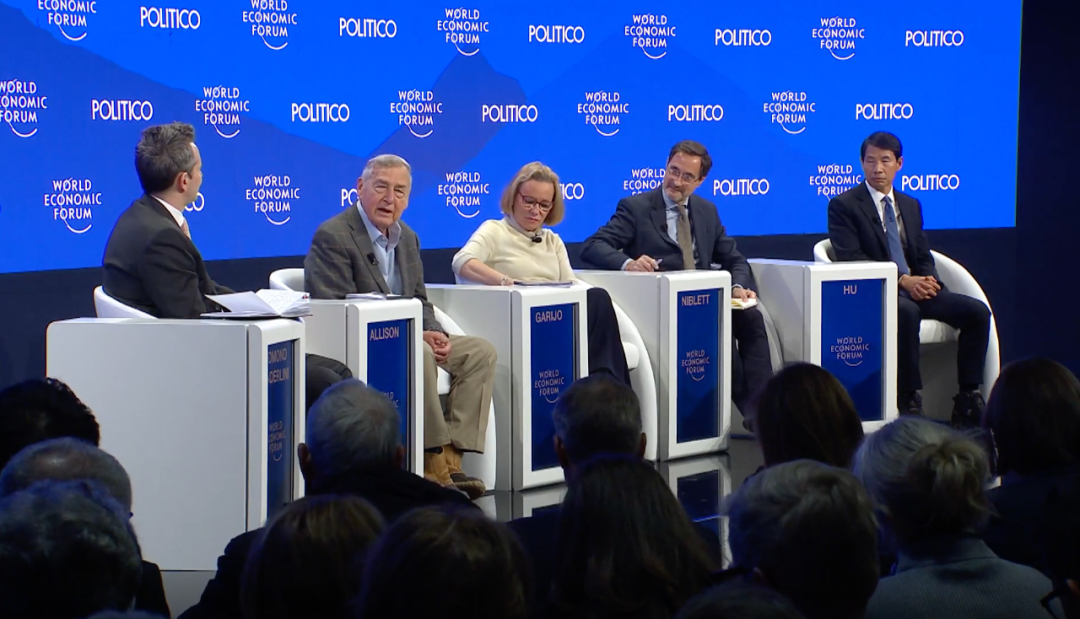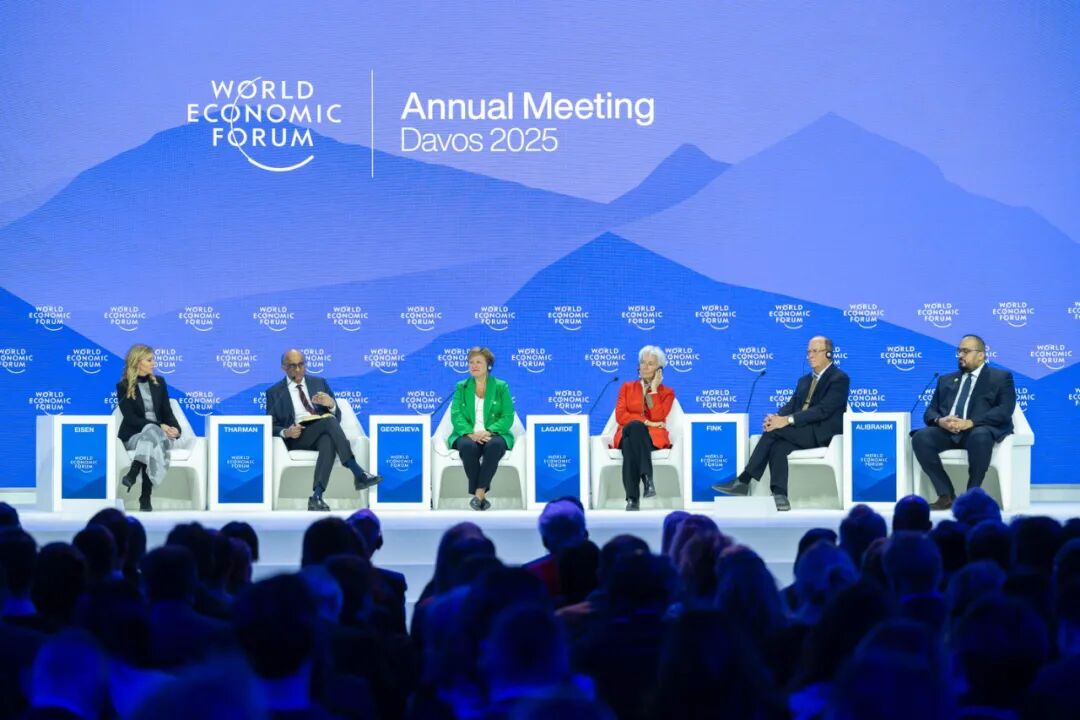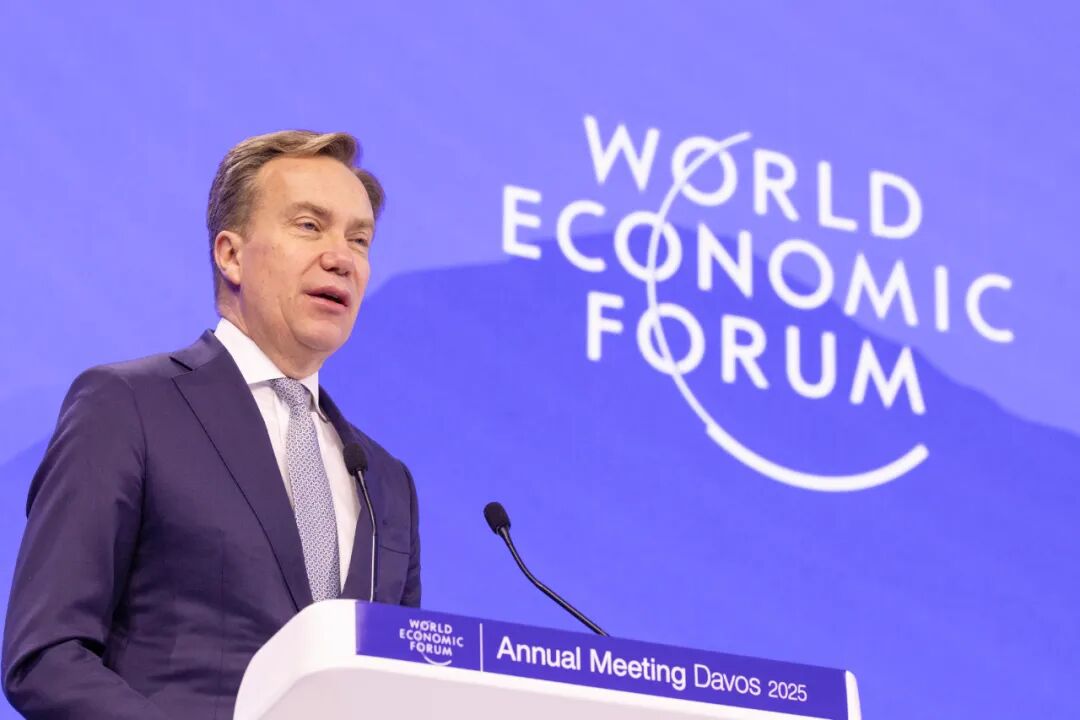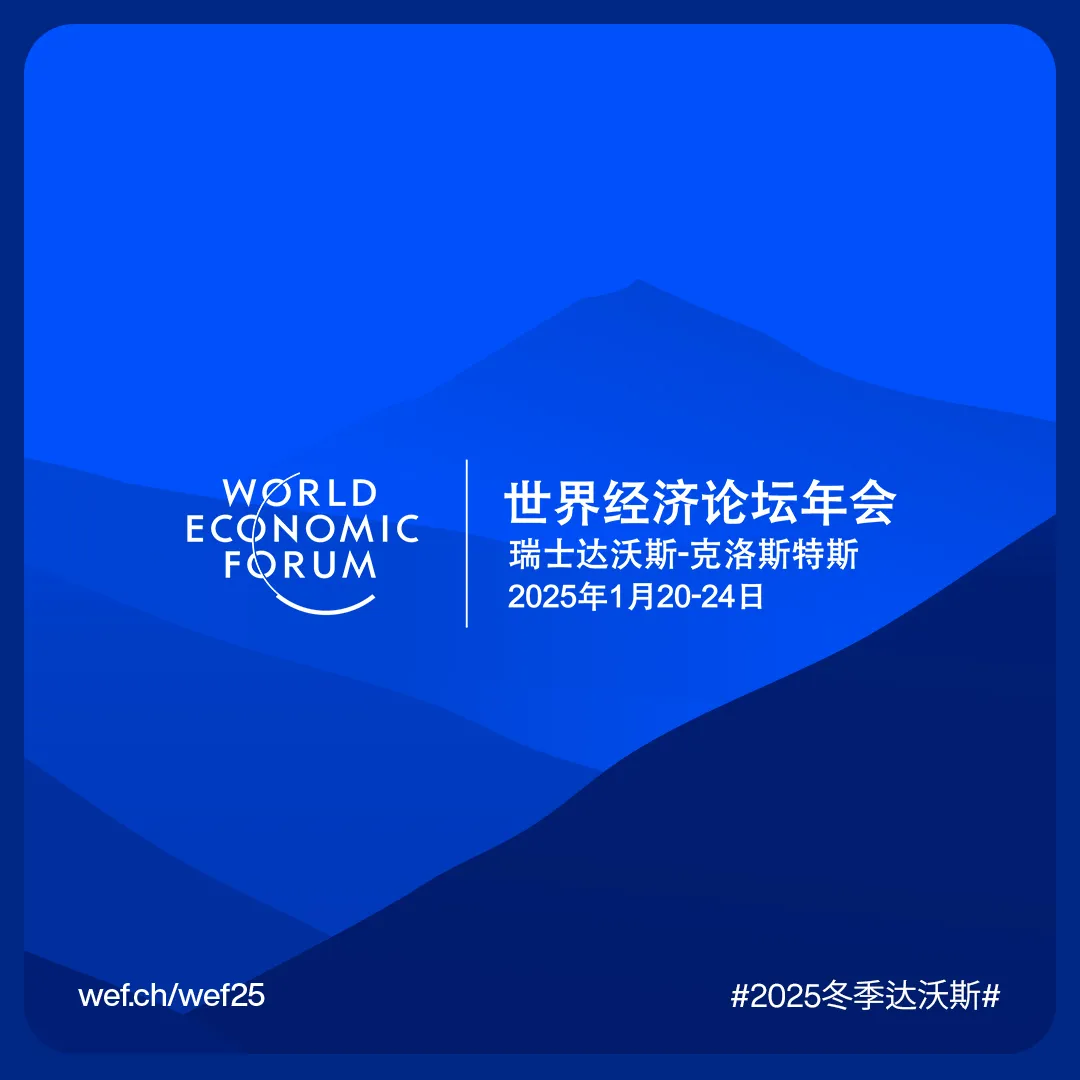
The 2025 World Economic Forum Annual Meeting will bring together nearly 3,000 leaders from more than 130 countries to discuss the theme "Collaboration in the Age of Intelligence," exploring strategies to tackle pressing global challenges and identifying emerging opportunities. As the global economy undergoes a profound paradigm shift, this year’s gathering will focus on how to reignite growth, harness cutting-edge technologies, and bolster societal and economic resilience.
This year's annual meeting agenda will be live-streamed in full on the World Economic Forum website, cn.weforum.org. Additionally, select sessions will be broadcast live via the WEF's official Weibo account. We encourage you to join the conversation on Weibo using the hashtag #2025WinterDavos#.The World Economic Forum's official WeChat account will also deliver daily summaries of the meeting and insights from featured guests.
What were the highlights of yesterday's agenda? Check out the excerpt we've prepared for you:
The China-U.S.-EU Trilateral Relationship

Despite escalating trade tensions between the United States, Europe, and China, their deep mutual economic interdependence continues to bind the world's major powers together—so far preventing competition from spiraling into outright conflict.As the three major powers continue to balance delicate diplomatic engagement with their pursuit of geopolitical economic interests, what will their future relationship look like?
Jamil Edmond Anderlini
Political Europe Editor-in-Chief
I believe that, despite differing perspectives in the past, today’s complex global geopolitical landscape underscores Europe’s critical strategic position on the world stage. Meanwhile, the evolving dynamics of the triangular relationship among the U.S., Europe, and China have already become a focal point of international attention.
Graham Allison
Douglas Dillon Professor of Political Science, Harvard Kennedy School of Government
"The Thucydides Trap" highlights the risk of conflict that can arise when a rising power challenges an established one. Currently, China-U.S. relations are at this critical juncture—but war is by no means inevitable. Both sides must act wisely to de-escalate tensions. After all, there are no winners in a nuclear war; such a conflict would lead to global catastrophe. The international community, especially Europe, should urge the major powers to recognize the importance of cooperation and work together to prevent a tragic outcome.
Ge Lihe
Chairman of the Executive Board and CEO of Merck Group
China, the U.S., and Europe are highly economically interdependent, serving as crucial trade partners despite their competitive dynamics. Businesses must build resilience to navigate today’s global economic landscape. In the face of uncertainty and volatility, the key lies in understanding the expectations of diverse markets and adapting with flexibility. Even as geopolitical tensions remain complex, all parties continue to pursue pragmatic pathways for cooperation.
Sir Robin Niblett
Distinguished Research Fellow at Chatham House
Europe occupies a unique and delicate position within the strategic triangle. While Europe wields significant economic and defense capabilities, it lacks the unified decision-making power that countries like the U.S. and China enjoy. In the event of a potential conflict, Europe’s stance will depend heavily on the specific context—particularly as NATO members may find themselves facing difficult choices. Yet, through rational dialogue and mutual understanding, all parties still have the opportunity to avert a catastrophic clash.
Hu Zuliu
Founder, Chairman, and CEO of Chunhua Capital
The Chinese economy is undergoing adjustments and refocusing on growth, providing a significant boost to global economic development. Europe can play a coordinating role in areas such as trade, helping to maximize global benefits. I urge Europe to uphold its independence and dignity, acting as a bridge between China and the U.S., actively promoting global peace and cooperation, and safeguarding its position in the evolving international landscape.
Click here to watch the conference replay.
Global Economic Outlook

The COVID-19 pandemic has disrupted the global economy for nearly five years, yet growth remains slow but steady. Inflation in advanced economies is gradually declining, and trade trends are showing signs of improvement. Still, challenges persist—such as high levels of public debt, ongoing geopolitical tensions, and the potential impact of industrial policies on smaller nations. Given this complex backdrop, what could be the likely outlook for the global economy in 2025?
Lawrence Fink
Chairman and CEO of BlackRock Group
Risk certainly exists in every economy, but the more hopeful global citizens are about the future, the more they’ll be able to boost consumption. Now is an ideal time to invest in Europe, which needs to focus more on strengthening its own initiatives—such as a banking union or capital union—to create a more unified capital market across the continent. Meanwhile, the U.S. should continue building its economic strength, ensuring that businesses of all sizes can successfully access the capital they need. If the U.S. can improve capital efficiency even further, it will no longer be held back by its own fiscal challenges.
Kristalina Georgieva
Managing Director of the International Monetary Fund
The economic outlook for 2025-2026 indicates that the broader environment is trending positively, though some key issues still warrant attention. Why is the U.S. experiencing robust economic growth, while Europe and emerging nations aren’t quite as optimistic? The reason lies in the fact that U.S. capital markets have effectively channeled investments into transforming cutting-edge technologies into tangible economic benefits. Additionally, the country’s abundant, low-cost energy resources have significantly boosted productivity. As the world continues to evolve rapidly—particularly driven by technological advancements—investors must adopt a long-term perspective, while nations, in turn, need to boldly open their doors to attract global investors.
Shang Daman
The President of Singapore
Today’s prevailing industrial policies are driven more by geopolitics than by an understanding—or evidence—of how to foster economic growth. To truly boost market competition, we need to focus on building our own capabilities rather than seeking ways to constrain others. In an increasingly interdependent world, nations should prioritize strategies that promote mutual complementarity. Moreover, we must expand our efforts in addressing climate change, safeguarding the water cycle, and preserving biodiversity. Countries should actively step in to encourage relevant investments, since leaving these critical areas entirely to the market would likely delay the achievement of our shared goals far beyond what’s necessary.
Faisal Ali Ibrahim
Saudi Arabia's Minister of Economy and Planning
We need bolder, more pragmatic leadership that bravely embraces various risks to emerge from the current uncertainty. Energy security and the energy transition must be ensured to progress smoothly, as stable supply is critical for global prosperity—and essential to preventing disruptions in international cooperation and addressing climate change.
Christine Lagarde
President of the European Central Bank
If European leaders can unite and take decisive action, Europe will be better positioned to address today’s challenges. Europe needs a banking and capital union to safeguard greater savings and strengthen its human capital reserves. The current challenges, which threaten human survival, stem from the fact that CEOs of major corporations are adopting a more pessimistic outlook due to rising energy costs and other pressing issues. In tackling these problems, the European Central Bank will continue to play a critical role.
Click here to watch the conference replay.
Closing Remarks

Borge Brende
President and CEO of the World Economic Forum
The current era is marked by uncertainty, as geopolitical and macroeconomic conditions continue to evolve rapidly. Achieving a new wave of growth, reducing carbon emissions, and putting an end to various conflicts are all urgent priorities. And at the heart of realizing these goals lies the power of collaboration. As this year’s Davos Forum has demonstrated, by exploring innovative models of cooperation, we can identify shared interests amid our differences, build consensus, and work together to create a brighter, more sustainable future for the world.
Click here to watch the conference replay.
Feel free to share this in your WeChat Moments; for reprints, please leave a message at the end of the article or on our official.
Text content: Wu Yimeng, Di Chenjing, Sun Qian | Edited by: Wang Can
The World Economic Forum is an independent and neutral platform dedicated to bringing together diverse perspectives to discuss critical global, regional, and industry-specific issues.
Follow us on Weibo, WeChat Video Accounts, Douyin, and Xiaohongshu!
"World Economic Forum"



